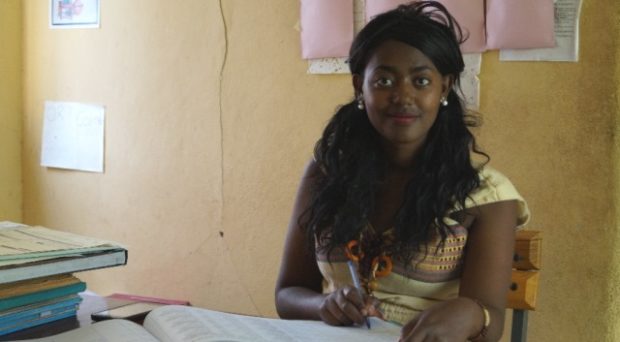
For over ten years I have been working on neglected tropical diseases (NTDs) with great enthusiasm and passion. I love working in this field, and enjoy above all, the opportunity to work in villages and with communities who are affected by NTDs.
These diseases have been neglected for a long time, but in recent years there has been great progress in controlling and preventing some of them. Success has been achieved mainly through vertical programmes, often aimed at targeting one specific disease at a time and implemented as public health interventions parallel to the country’s health system. Examples include treating entire populations via mass drug administrations for the treatment of worm infections, trachoma and other diseases.
Through my work implementing such activities, I had the opportunity to work in the field and engage with health staff, health volunteers, teachers and children, through which I came to understand some of the common needs, aspirations, and frustrations felt by people, and as a result, identified some missed opportunities.
Neglecting knowledge
During my visits to health centres, I realized that laboratory technicians often did not know that they had to use a Kato Katz test to confirm worm infections or that blood in a patient’s urine could be a symptom of urinary schistosomiasis, even in areas known to be endemic for this disease.
People were dewormed, yet health staff were incapable of understanding these diseases, and therefore unable to diagnose them. This field experience demonstrated to me a clear example of neglect; not of NTDs, but of the need to build knowledge and basic capacity to cope with these diseases beyond large-scale treatment campaigns.
This field experience demonstrated to me a clear example of neglect; not of NTDs, but of the need to build knowledge and basic capacity to cope with these diseases beyond large-scale treatment campaigns.
Health workers need adequate training and equipment to perform their duties; however as often governments do not have the financial resources or the capacity to train people, many rural facilities cannot detect and routinely report NTDs.
The problem gets worse when we deal with diseases for which we don’t have diagnostic tests or drugs for use in national campaigns. In these cases, disease management is left to the health staff, and if the health staff are unable to diagnose these diseases at early stages, patients can be impacted very severely.
Children with Buruli ulcer often develop ulcers that eventually require surgery to reconstruct muscles and skin, but with little hope of regaining normal function in the affected limbs. If Buruli ulcer is detected in time, disability is avoided. Again, I believe this is another example of neglect; of the need to increase community awareness about disabling illnesses. It also highlights the importance of seeking help at early stages of these diseases and providing adequate training to improve health staff skills for detecting diseases on time.
Building knowledge
Of all my field work, the most positive experiences have involved working with health staff to identify the practical problems teams are having, and then finding sustainable solutions that work for them. I often received huge gratitude for being in the field with them, facing their challenges, listening to their needs and frustrations, and above all, finding feasible solutions that would help them improve their routine work.
I believe this is another sign of the importance of training health staff to strengthen processes, improve the quality of the work and build the self-confidence of health personnel to undertake new tasks. NTD interventions have tended to neglect this aspect, in favour of focusing on lowering the disease burden without solving the problem of sustaining this achievement by building internal knowledge and capacity.
My field experience has taught me that we need to stop bypassing the problem of educational and technical gaps, and the absence of continuous technical support to communities and health staff. We need to ensure continuous monitoring and constructive supervision that incentivises people in their work, as this is the route to making them independent.
This implies a much wider scope of work that will be harder, take longer, and possibly be less appealing to stakeholders interested in easy wins as opposed to sustainable progress. However, the result will be a strengthened health system that is more capable of handling the prevention, diagnosis, treatment and active surveillance of NTDs, leading to sustainable progress towards disease elimination. It will be a long process, but Rome was not built in a day…
Comments